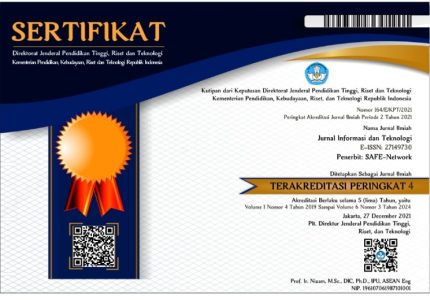Overview of Business Technology ACCA
Business Technology ACCA is a vital component of the Association of Chartered Certified Accountants’ qualifications, focusing on the essential role of technology in the modern business environment. It provides students with a foundational understanding of how digital tools and systems can enhance business operations, decision-making, and strategic planning. As technology continues to evolve rapidly, mastering its application within the finance and accounting sectors is crucial for professionals aiming to stay competitive and innovative.
Definition and scope of Business Technology in ACCA
Business Technology ACCA refers to the fundamental understanding of how technology is integrated and utilized within business environments to achieve strategic objectives. It encompasses the study of various technological tools, systems, and processes that support business operations, decision-making, and competitive advantage.
The scope of Business Technology in ACCA includes topics such as information systems, digital innovations, data management, cybersecurity, and the impact of emerging technologies on business processes. It aims to equip students with the knowledge to effectively analyze and implement technological solutions that enhance organizational performance and sustainability.
Importance of Business Technology for ACCA students and professionals
Business Technology ACCA is a crucial area that equips students and professionals with the knowledge and skills to leverage technological advancements in the business environment. It covers various aspects such as information systems, digital tools, cybersecurity, data analytics, and emerging technologies that are transforming the way businesses operate and make decisions.
The importance of Business Technology for ACCA students and professionals cannot be overstated. In a rapidly evolving digital landscape, understanding how technology impacts financial and business processes is essential for informed decision-making, enhancing efficiency, and maintaining competitiveness. It enables professionals to adopt innovative solutions, improve risk management, and ensure compliance with technological regulations, ultimately adding value to their organizations and clients.
Core concepts and principles of Business Technology
Business Technology ACCA encompasses the fundamental tools, systems, and techniques that enable organizations to improve efficiency, decision-making, and competitive advantage in the modern digital environment. It involves integrating technology into business processes to support strategic objectives and operational effectiveness.
Core concepts of Business Technology include understanding various technological infrastructure components such as hardware, software, networks, and databases. It also emphasizes the importance of data management, cybersecurity, and the ethical considerations surrounding technology use in business.
The principles of Business Technology focus on aligning technology initiatives with business goals, ensuring proper governance, and fostering innovation through the adoption of emerging technologies. Key principles include ensuring data integrity, maintaining security, and promoting continuous improvement to adapt to evolving technological landscapes.
Key Components of Business Technology in ACCA
Understanding the key components of business technology is essential for ACCA students to grasp how technology impacts the modern accounting and business environment. Business technology integrates various tools and systems that enhance efficiency, accuracy, and decision-making processes in organizations. By mastering these components, future professionals can effectively leverage technology to support strategic objectives and maintain competitive advantage in a rapidly evolving digital landscape.
Information Systems and their Applications
Key components of Business Technology in ACCA include various elements that support the effective operation and management of an organization’s information systems. These components integrate to enable seamless data processing, storage, and communication, which are essential for achieving business objectives. Understanding these components is crucial for ACCA students to grasp how technology enhances decision-making and efficiency within a business.
Information Systems are vital in modern businesses, comprising hardware, software, data, procedures, and people. Hardware includes computers, servers, and networking devices that facilitate data processing and communication. Software encompasses operating systems and application programs that perform specific business functions. Data is the foundational element, providing the raw information needed for analysis and decision-making. Procedures are the policies and processes established to manage data and system operations effectively. People are the users and administrators who interact with these systems to perform their roles.
Applications of information systems in business include transaction processing, management information systems (MIS), decision support systems (DSS), and enterprise resource planning (ERP). These applications help automate routine tasks, provide managers with timely information, support strategic decisions, and integrate various business functions for improved efficiency. ACCA emphasizes understanding how these components and applications work together to support business processes and ensure effective operational management.
Digital Transformation and Innovation
Business technology in ACCA encompasses the essential tools and systems that support and enhance organizational operations, decision-making, and strategic growth. Key components include hardware, software, digital platforms, data management systems, and networking infrastructure, all of which facilitate efficient business processes and communication.
Digital transformation and innovation are central to modern business technology, enabling organizations to adopt new digital solutions that improve productivity, customer engagement, and competitive advantage. This involves leveraging emerging technologies such as cloud computing, artificial intelligence, big data analytics, and automation to streamline workflows, foster innovation, and adapt to changing market dynamics.
Data Analytics and Business Intelligence
Key components of Business Technology in ACCA encompass various technological elements that support organizational operations and strategic objectives. These include hardware, software, networks, databases, and cloud computing, which collectively enable efficient data processing and communication. Data Analytics plays a crucial role by transforming raw data into meaningful insights through techniques such as statistical analysis, data mining, and predictive modeling. Business Intelligence (BI) involves the use of tools and systems to analyze data, generate reports, and support decision-making processes. Together, these components enhance a company’s ability to leverage technology for competitive advantage, improve operational efficiency, and drive innovation within a business environment.
Cybersecurity and Risk Management
Business technology in ACCA encompasses various key components that are essential for the efficient and secure operation of modern organizations. These components include hardware, software, networks, data management systems, and cloud computing infrastructure. Each element plays a vital role in supporting business processes, enabling communication, and facilitating data analysis. In the context of ACCA, understanding these components helps aspiring professionals identify how technology drives business strategies and operational efficiencies.
Cybersecurity and risk management are critical facets of business technology within ACCA. As organizations increasingly rely on digital systems, safeguarding sensitive information from threats such as cyberattacks, data breaches, and malware becomes paramount. Risk management involves identifying, assessing, and mitigating potential technological threats to protect business assets and ensure continuity. Mastering these areas equips ACCA students with the skills to develop robust security protocols, implement effective controls, and respond appropriately to technological risks, thereby supporting sustainable and secure business growth.
Emerging Technologies: AI, Blockchain, and Cloud Computing
In the realm of Business Technology within ACCA, understanding the key components is essential for leveraging emerging technologies effectively. Artificial Intelligence (AI) enables automation and data analysis, facilitating smarter decision-making processes. Blockchain offers enhanced security, transparency, and decentralization, transforming transaction recording and verification. Cloud Computing provides scalable, flexible, and cost-effective access to data and applications, supporting real-time collaboration and innovation. Together, these technologies are shaping modern business strategies, driving efficiency, transparency, and competitive advantage.
Curriculum and Learning Outcomes
Curriculum and learning outcomes are essential components of any educational program, providing a clear framework for what students should achieve. In the context of business technology ACCA, a well-structured curriculum ensures that learners acquire the necessary knowledge and skills to excel in the rapidly evolving field of technology within the business environment. Defining precise learning outcomes helps guide both instruction and assessment, ultimately reinforcing the preparation of students for professional success in business technology roles.
Learning Objectives of Business Technology ACCA Module
The Business Technology ACCA module aims to equip students with essential knowledge and skills related to the use of technology in business environments. It focuses on understanding how technological advancements influence business operations, strategy, and decision-making processes. The module emphasizes the development of practical skills to evaluate, implement, and manage technology solutions effectively in various organizational contexts.
The learning outcomes of this module include the ability to identify the role of technology in supporting business activities, analyze the impact of emerging technological trends, and apply knowledge to real-world scenarios. Students will also develop critical thinking skills to assess technological risks and opportunities, ensuring they can contribute to strategic business initiatives.
The learning objectives of the Business Technology ACCA module are to enable students to understand the fundamentals of information systems, recognize the importance of data management, and evaluate the security and ethical considerations related to technology use. They will also learn to leverage technology for process improvement and to support organizational goals effectively.
Skills Developed through the Business Technology Module
The Business Technology module within the ACCA curriculum is designed to equip students with essential skills in understanding and applying modern technology tools in a business context. It aims to develop both theoretical knowledge and practical competencies that are crucial for effective decision-making and operational efficiency in organizations. Learning outcomes include an understanding of information systems, cybersecurity, data management, and the role of technology in business strategy. Students also enhance their problem-solving skills, analytical thinking, and ability to evaluate technological solutions to support business objectives. The module fosters a comprehensive grasp of how technology integrates with various business functions, preparing students for the challenges of the digital era in the accounting and finance professions.
Assessment Methods and Examination Format
The curriculum for Business Technology ACCA is designed to equip students with essential knowledge and skills related to the application of technology in the business environment. Learners will understand the role of information systems, data management, and emerging technologies to support strategic decision-making. The learning outcomes aim to develop competencies in analyzing technological solutions, managing information systems, and understanding the ethical considerations associated with technology use in business contexts.
Assessment methods for this module typically include a combination of multiple-choice questions, case study analyses, and practical tasks to evaluate both theoretical understanding and applied skills. These assessments are designed to test students’ ability to integrate technological concepts into real-world business scenarios, demonstrating their proficiency in handling information systems and digital tools effectively.
The examination format usually consists of a three-hour written exam, comprising multiple-choice questions and longer, scenario-based questions. Students are required to demonstrate their analytical and problem-solving abilities, referencing up-to-date technological principles and their relevance to business strategies. Successful completion of the exam ensures a comprehensive understanding of business technology within the ACCA qualification framework.
Practical Applications in Business
Business technology plays a vital role in modern enterprises, revolutionizing the way companies operate and compete. Practical applications in business help organizations improve efficiency, enhance decision-making, and foster innovation. Understanding these applications is essential for professionals pursuing ACCA qualifications, as they provide valuable insights into integrating technology to achieve strategic goals and drive sustainable growth.
Implementing Technology Solutions in Organizations
Practical applications of business technology are essential for enhancing efficiency, improving decision-making, and fostering innovation within organizations. Implementing technology solutions in businesses allows for streamlined operations, automation of routine tasks, and better data management. For example, integrating enterprise resource planning (ERP) systems can unify various business processes, leading to increased productivity and reduced errors. Additionally, utilizing customer relationship management (CRM) tools helps organizations improve customer interactions and boost sales. In the context of ACCA (Association of Chartered Certified Accountants), understanding how to effectively deploy and manage these technological solutions is critical for future finance professionals seeking to optimize business performance and maintain competitive advantage.

Improving Business Processes with Technology
Business technology ACCA plays a crucial role in enhancing operational efficiency and competitive advantage by streamlining processes and leveraging innovative tools. Companies adopting these technologies can optimize resource management, improve decision-making, and respond swiftly to market changes.
- Automating routine tasks to reduce errors and save time.
- Implementing data analytics for informed strategic planning.
- Using cloud computing to facilitate remote access and collaboration.
- Enhancing communication through integrated enterprise systems.
- Strengthening security protocols to protect sensitive business information.
Strategic Decision-Making Using Business Technology
Practical applications of business technology in strategic decision-making are transforming how companies operate and compete in today’s dynamic market environment. Leveraging advanced tools such as data analytics, cloud computing, and enterprise resource planning systems enables businesses to make informed decisions quickly and accurately. These technologies facilitate real-time data access, improve communication across departments, and enhance overall operational efficiency. As a result, strategic decisions are more data-driven, reducing risks and identifying new growth opportunities. In the context of ACCA’s focus, understanding these practical applications equips professionals with the skills to implement technology solutions that support sustainable business strategies and maintain competitive advantage in the marketplace.
Benefits of Business Technology Certification for ACCA Members
Business technology certification offers ACCA members a valuable opportunity to enhance their professional skills and stay competitive in the evolving financial landscape. By gaining specialized knowledge in technology, members can improve their efficiency, make data-driven decisions, and adapt to the digital transformation within accounting and finance industries. This certification also opens doors to new career prospects and positions ACCA professionals as forward-thinking leaders in their field.
Enhancing Professional Competence
Business Technology Certification offers ACCA members a valuable pathway to enhance their professional competence by developing expertise in the latest technological tools and digital solutions. This certification helps accountants stay ahead in a rapidly evolving business environment, enabling them to leverage technology for improved decision-making and efficiency.
Acquiring business technology skills through certification allows ACCA members to increase their competitiveness in the job market and adapt to the increasing demand for digital proficiency in finance and accounting roles. It broadens their capabilities, making them more versatile and capable of implementing innovative solutions within organizations.
Moreover, this certification fosters a deeper understanding of emerging technologies such as data analytics, artificial intelligence, and blockchain, empowering professionals to provide strategic insights and add greater value to their organizations. It also promotes continuous professional development, ensuring ACCA members remain relevant and effective in their roles.
Overall, Business Technology Certification enhances ACCA members’ professionalism by equipping them with the essential skills to integrate technology seamlessly into their work, thereby improving productivity, accuracy, and strategic impact in the dynamic landscape of modern business.
Career Advancement Opportunities
Obtaining a Business Technology Certification can significantly enhance the career prospects of ACCA members by equipping them with essential technological skills relevant to today’s dynamic business environment. This certification helps professionals stay competitive and relevant in industries increasingly driven by digital transformation, data analytics, and innovative financial technology solutions.
For ACCA members, this certification opens up a multitude of career advancement opportunities, including roles in financial technology, digital transformation management, and strategic consulting. It enables them to take on higher responsibilities, contribute to digital strategy development, and lead technology-driven projects within organizations.
Moreover, Business Technology Certification complements the accounting expertise of ACCA members, allowing them to integrate financial and technological insights seamlessly. This integration positions them as valuable resources in organizations seeking to leverage technology for improved decision-making, operational efficiency, and competitive advantage.
Overall, the certification not only boosts individual skill sets but also enhances credibility and employability, paving the way for promotions, leadership roles, and diversified career paths in the evolving business landscape.
Contributing to Business Efficiency and Innovation
Business technology certification offers ACCA members a strategic advantage by enhancing their ability to implement innovative solutions and improve business efficiency. It equips professionals with the latest technological skills, enabling them to streamline processes, automate routine tasks, and foster data-driven decision making. This proficiency in business technology not only supports operational excellence but also drives organizational growth and competitive edge. By integrating technology into their skill set, ACCA members can contribute to transformative initiatives that promote innovation and agility within their organizations.
Challenges and Future Trends
In the rapidly evolving landscape of business technology, understanding the challenges and future trends in the English language is essential for maintaining effective communication and competitive advantage. As organizations increasingly adopt innovative digital solutions, overcoming language barriers and adapting to new linguistic trends become vital for seamless collaboration and global outreach. Exploring these dynamic aspects will provide valuable insights into how businesses can navigate and leverage the future of language in the context of technology advancements.
Adapting to Rapid Technological Changes
Adapting to rapid technological changes presents both significant challenges and exciting opportunities for business technology professionals in the ACCA field. Staying current with emerging tools and systems requires continuous learning and agility, which can strain resources and expertise within organizations. Additionally, integrating new technologies often involves overcoming resistance to change, ensuring data security, and maintaining operational efficiency during transition periods. Looking ahead, trends such as artificial intelligence, blockchain, and automation are expected to reshape the landscape of business technology. Professionals must focus on developing skills in these areas, fostering innovation, and promoting a culture of adaptability to remain competitive in an ever-evolving environment. Embracing these technological advances will be crucial for organizations aiming to enhance productivity, improve decision-making, and sustain growth in the future market.
Cybersecurity Threats and Data Privacy
In the realm of business technology ACCA, organizations face ongoing challenges related to cybersecurity threats and data privacy, which require continuous vigilance and adaptation. The increasing sophistication of cyberattacks, such as ransomware, phishing, and zero-day exploits, poses significant risks to business operations and sensitive information. Additionally, the growing importance of data privacy regulations, like GDPR and CCPA, demands robust compliance strategies and ethical data management practices. Looking ahead, advancements in artificial intelligence and machine learning are expected to enhance threat detection and response capabilities. Businesses will increasingly adopt integrated cybersecurity solutions that combine automation, analytics, and proactive measures to mitigate risks. Furthermore, trends toward decentralized data management and encryption methods aim to strengthen privacy protections while enabling secure data sharing across platforms. Staying ahead in this dynamic landscape will necessitate ongoing investment in cybersecurity expertise, technology innovation, and a strong organizational culture centered on data security and privacy consciousness.
Future Trends in Business Technology for Accountants
Challenges and future trends in business technology for accountants, especially within the context of ACCA, are shaping the way professionals adapt to rapid technological advancements. Accountants face hurdles such as data security concerns, integration of new systems, and maintaining regulatory compliance while leveraging emerging tools. Additionally, the continuous evolution of technology demands ongoing upskilling and adaptation to stay relevant in the industry.
Looking ahead, future trends in business technology for accountants include increased adoption of artificial intelligence and machine learning to automate routine tasks, enhance predictive analytics, and improve decision-making processes. Cloud computing will continue to enable greater flexibility, collaboration, and real-time data access. Blockchain technology is also anticipated to influence financial transactions and audit processes with improved transparency and security. Furthermore, the use of advanced data analytics will empower accountants to provide more strategic insights, transforming their roles from traditional number crunchers to consultative business advisors. Staying abreast of these trends will be vital for ACCA members aiming to maintain competitive advantage in the evolving landscape of business technology.





